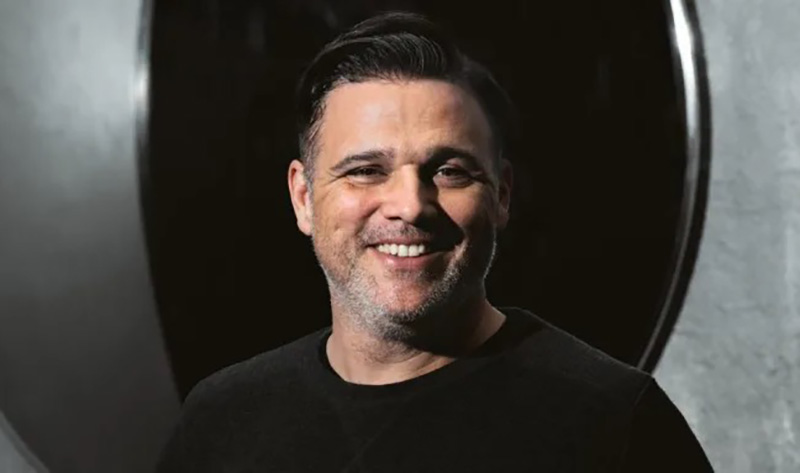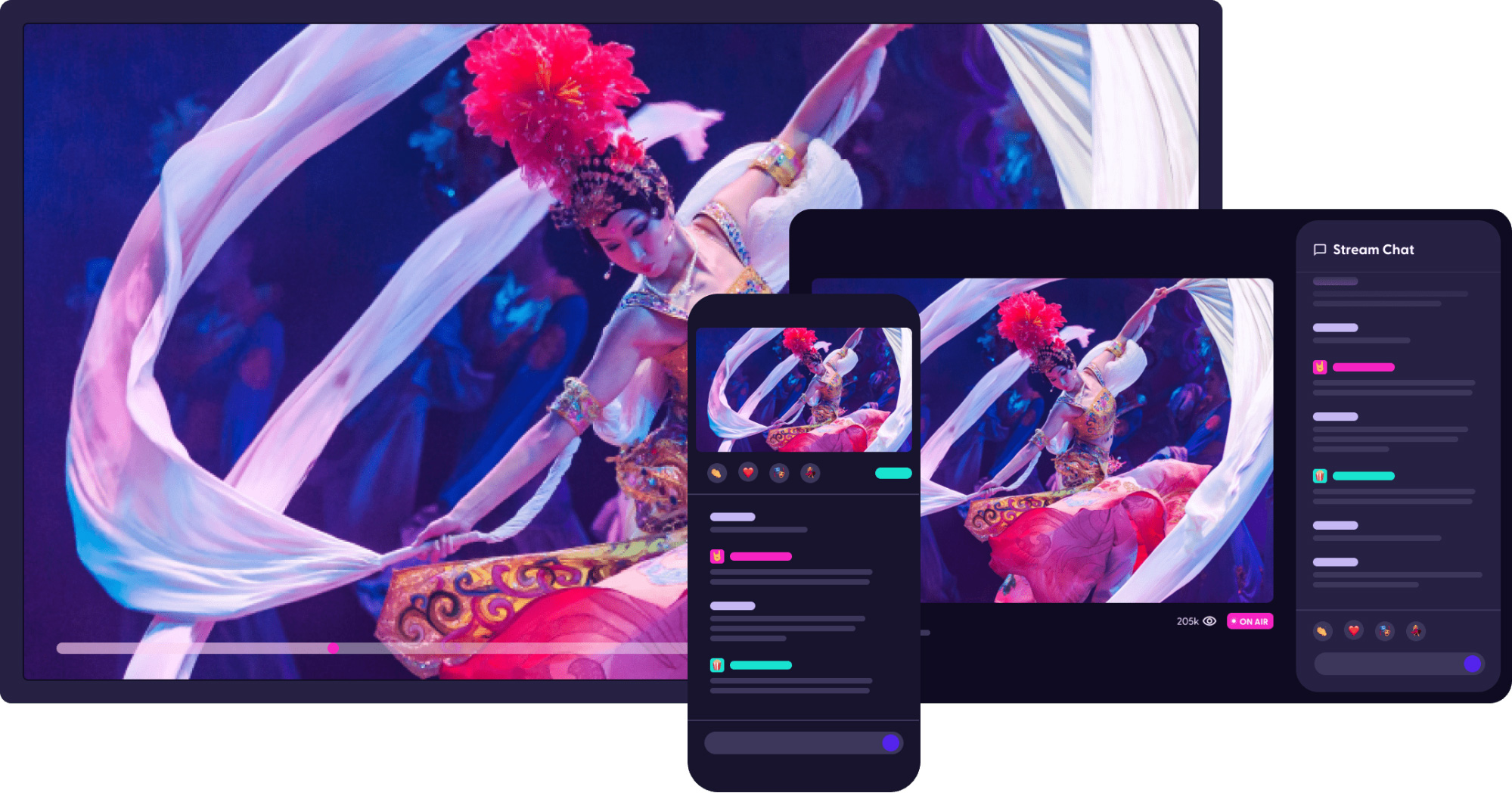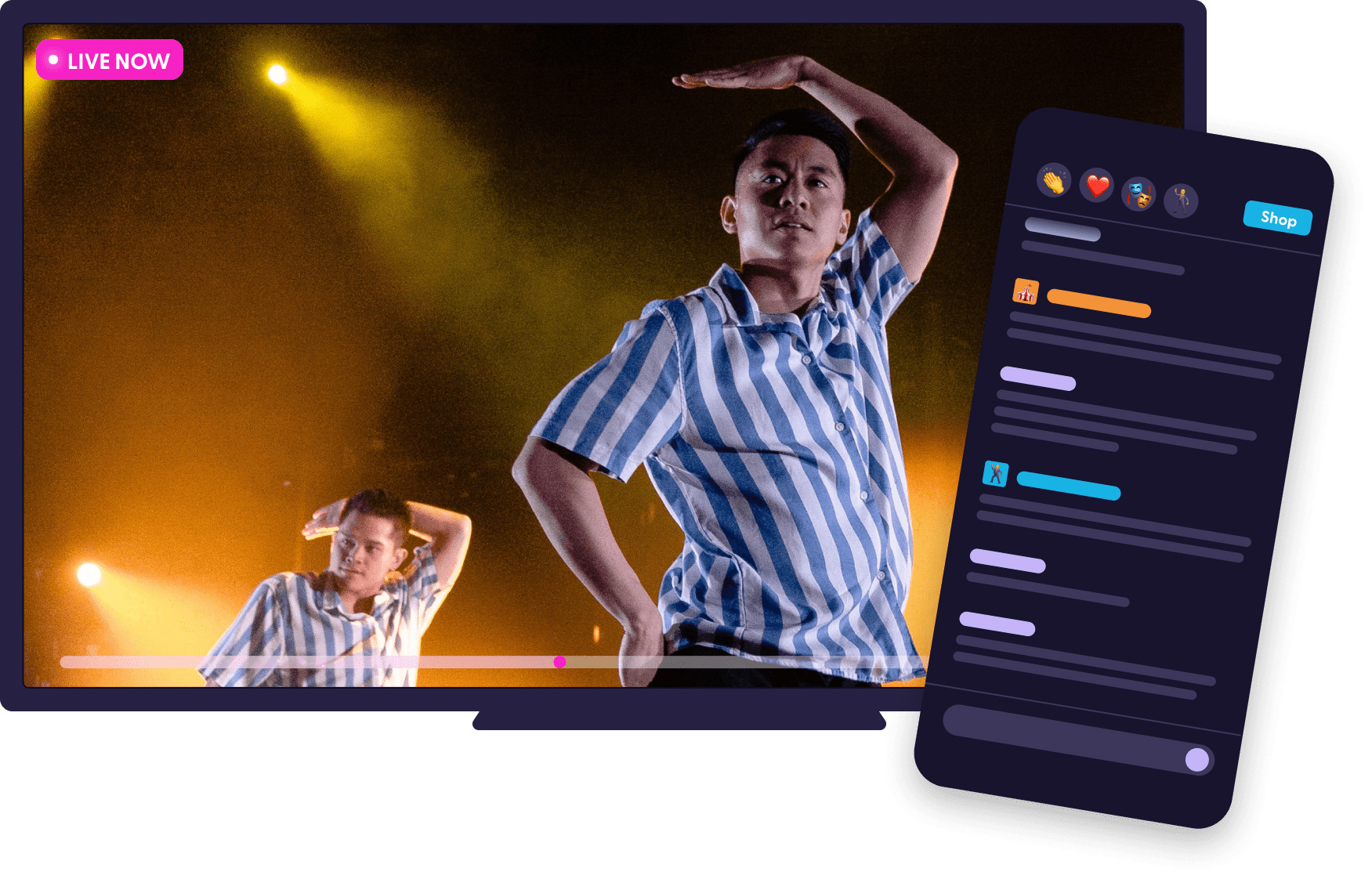Stellar's Jim McCarthy on Virtual Events Amid a Return to In-Person
One of the biggest consumer behavior shifts to come out of the pandemic was the massive and rapid adoption of people experiencing virtual events. From trade shows to major concerts to acclaimed cultural performances, the explosion of virtual event technology boomed in ways and at a speed I could never have imagined.
One of the major players in that sea change was the innovative startup Stellar, which was founded by leading live entertainment visionary Jim McCarthy. I've known Jim for many years, so it was truly a pleasure to sit down with him to get his take on where things are in the world of virtual events, and what's to come.
Damian Bazadona: Your company, Stellar, both was born and boomed during the pandemic. What was the problem you saw in the virtual event space that you were most passionate about trying to solve? Why did you think you were the right ones to solve it? And why was this the right moment?
Jim McCarthy: We greenlit the Stellar project in May 2020 after thinking long and hard about it for several weeks. The shutdown brought our Goldstar business to a complete halt, of course, and we were very confident that the crisis for live entertainment was going to be long. In the early days of the pandemic, live event creators were admirably scrappy, stringing together different tools and software to create an OK-ish online event product. We felt that live event creators would get more sophisticated as time went on and would want a real system for ticketing, streaming and generally delivering a professional, quality online show—and that's what happened.
Was there anything about the innovation curve of that period that frustrated you?
Eh, not really. People are going to adopt when they adopt. Right now, many of the people who jumped in have jumped out. Partly, that's because getting back onstage for in-person events has been a harder lift than any of us imagined. That's the part I sympathize with. The other part is that some people never really tried online events. They did something half-baked with a minimal budget, didn't get any traction, and then said, "See? That didn't work!" Those are the people who ultimately are threatened by the disruption that online events represent. The early adopters and innovators who are in right now are figuring out a formula that's going to make things very, very challenging for their competition in a few years. They're just going to have the audience, the reach and the resources to out-compete those who can't think in terms of hybrid.
But all of this is exactly how it's supposed to be. Early adopters figure things out because they've got the temperament and mind for it. Done right, they become legendary. After that, some people follow their lead and do very well. It's the ones after that who find themselves in trouble. They're suddenly underskilled, under-resourced and unable to give their audience what they want. But that's just how it goes. I've seen this play out on a large scale twice in my career. Once with the adoption of the internet and World Wide Web, and then again 15 or so years later with mobile. Some people got it first, others followed fast, and others got flattened.
What was one of the most interesting things you observed about the shifts in consumer behavior in entertainment across the last 2+ years as people shifted to virtual events?
Consumer preferences and behavior are up for grabs right now, especially in live. If the shutdown or lockdown had been short, or even if it had been a few months, most of the old habits would have just picked back up. But after two years, we are, in many ways, different people. So there's a jump ball of sorts right now. It's anybody's game because habits have changed and/or are being re-formed. Some things that people used to do are gone forever, at least for them. Given time to think about what they were doing, they've reconsidered. In fact, wouldn't it be sad if we just time-warped back to March 2020? Obviously, it's exciting to be able to do some things again that we couldn't before, but if you haven't used this time as an opportunity to rethink your personal life patterns, there might be something wrong with you.
We traditionally think of fandom as something that has its roots in the physical, live event experience (i.e., the stage door after a show). Having worked in both spaces, what would you say is one of the most interesting differences between the fandoms of virtual events vs. in-person events? What has changed about the way fans show their fandom?
Only theater people think of fandom as being a primarily in-person thing. What do you have, maybe 100 people at a stage door? That's very cool, but 100 is still a really, really small number. If there are 100 people who can and will stand outside on a Manhattan sidewalk to see a performer, that probably means there are 10,000 or 100,000 who would do that or something else to express their fandom if they had a chance. But the industry does a lot, unintentionally, to make that impossible or very hard for people. In the rest of the world, 100 people expressing their fandom is a rounding error of a rounding error. Live events, even if they're online, are a major, peak experience for fandom.
We've seen so many examples of thousands or tens of thousands of fans joining in online for a live event and geeking the hell out on whatever their fandom is. We sold a chainsaw for $2,500 to a fan of Evil Dead during a live online event. People propose to each other in chat. They stick around for an hour after events just to be with each other. Both kinds of fandom are great, and in fact, they're a continuum of opportunities. You've heard me say this a million times, but imagine if sports fans could only express their fandom at the stadium. The NBA would be a LOT smaller. It's time for the live world, and theater in particular, to lock onto this concept.
Now that we have gravitated so much toward virtual, live events in the pandemic, what do you think is the "magic ingredient" an in-person event needs to have to really convince someone to come out of their home and have that experience?
First, I have to make sure to say that I love in-person live events. It's one of the things that I really missed during the pandemic, among many others that I did not. There's absolutely no danger of virtual events "replacing" in-person events. They're two different experiences. The great event producers, like Eva Price for example, are figuring out that the future really is hybrid, and the experience of the same show in person and online are two very different literal things.
If you want a good example of this, watch the VOD of her production of Cruel Intentions, which was on stage live in December and also live on Stellar at the same time. The online audience saw things that the in-person audience didn't, and vice versa. It was innovative and amazing, and that's what's coming as time goes on.
The magic ingredient of in-person live is that it's in-person, but producers shouldn't over-rely on that. Make me so happy I'm there in person that I can't imagine being anywhere else. It's not about the fact that only X number of people can come to the show. That's a scarcity mindset. It's about the power of being in the same place with other people. You've got to leverage that as an in-person event producer.
If you had a crystal ball, what do you think the future of virtual, live events looks like now that we have returned to in-person experiences as well?
Actually, I wrote a book on this subject that's coming out in a couple months. It's called Beyond the Back Row, and it's a quick but juicy primer for getting up to the starting line if you're interested in online events. I'm especially excited to get it into the hands of the people who want a seat at the table in this industry and can't get one. Online and hybrid might just be the way in for them, and they might knock over a few things getting there. Would that be so bad? I don't think so.
But more to the question, the future of virtual is hybrid for the next few years. When producers and venues learn to leverage the shows they're already doing to get an incremental audience, great things can happen. Financially, artistically and in terms of reach, it's a long-needed improvement to the industry. The choice is whether you're going to be leading the innovation this enables or following it. It's OK to follow, especially, as I say, if you follow fast. But some people, in the medium and long term, will get obsoleted by this. Especially as Gen Z moves into the workplace and becomes key consumers.
Digital isn't a threat to live entertainment. It's a major, major opportunity. But it is a threat to people who stay in the old mode for too long, so don't let that be you.
Building Passionate Communities is a regular interview series where Damian Bazadona, president and founder of Situation Group, sits down with extraordinary leaders at organizations that have paved the way in both cultivating passionate communities and driving them to meaningful action. For more about Building Passionate Communities, or to be considered for the series, please get in touch.













